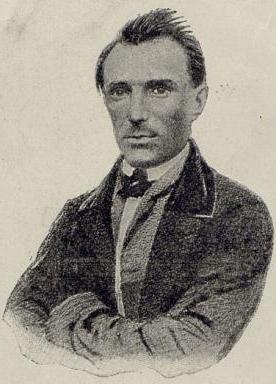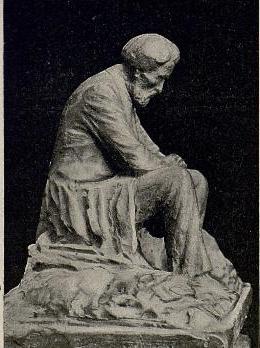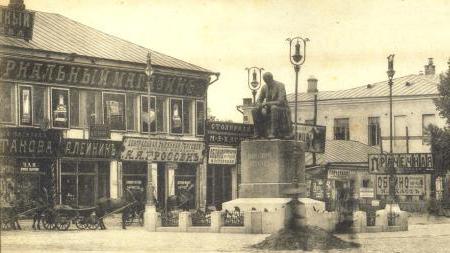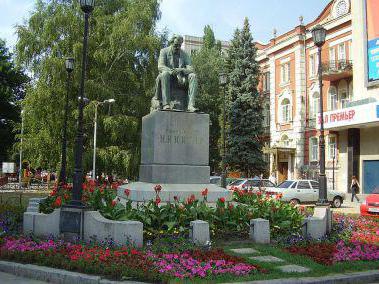The poet and writer Ivan Nikitin and his works are not included in the school curriculum in literature. This name is known today only to students studying a course of Russian literature at a deeper level. Often, Ivan Nikitin is unfamiliar even to those who sing songs to his poems.
Half-forgotten classic
In the Russian literary criticism of the Soviet period, a stable hierarchy of literary values has developed, according to which, all nineteenth-century writers are ranked by their importance. In accordance with this hierarchy, the writer Nikitin Ivan Savich does not belong to the number of stars of the first magnitude. He is recognized as a classic, and of course, no one forgot about him. It is known that Ivan Nikitin is a poet from the Russian hinterland.
But it is customary to mention it only after listing the most significant contemporaries. Let's try to figure out how justified it is.
Facts from the biography of a classic of Russian literature
The biography of I. S. Nikitin originates in Voronezh. It was in this ancient provincial city that the future poet was born in 1824. His childhood was spent in a poor merchant family, which existed on income from small retail trade. Ivan Nikitin successfully studied at the Voronezh seminary. However, he was not destined to complete a spiritual education. The entire biography of I. S. Nikitin could have had a completely different continuation if his father had not finally gone bankrupt on the basis of continuous drunkenness, and this sad circumstance would not have put the family on the verge of poverty.
The beginning of the creative path
The young man had to earn a living on his own. He was forced to quit studies at a theological seminary and get a job in an inn. However, the former seminarian shows persistence of character - he reads a lot, is engaged in self-education, and learns foreign languages. Reads in the original classics of world literature. He is trying his hand at poetry and prose.

In this period of his life, the circle of his communication is made up of the Voronezh intelligentsia of various ranks. And in this very demanding circle he is accepted as an equal. Thus, Ivan Savvich Nikitin, whose childhood and youth passed in poverty and deprivation, is taking the first steps to success and recognition. The harsh school of life not only contributed to the tempering of his character, but also largely determined the choice of images and those with which he would be destined to enter Russian literature in the future. The metropolitan public will soon learn a lot of new and interesting information by reading the stories of Nikitin Ivan Savich about provincial Voronezh.
In great literature
The literary biography of I. S. Nikitin began in the early Voronezh years. Despite the fact that most of what he wrote during this period is not entirely independent, it was in the Voronezh provincial newspaper that published his poem "Rus" that the poet made his literary debut. This publication did not go unnoticed in the literary capitals of the Russian Empire. And the point here is not only in the relevant topics of the poem dedicated to the Crimean War.
Literary critics of the capital’s publications, where the poem was reprinted, noted the artistic originality of the work and the undoubted echoes of the poetry of another famous Voronezh - the recently deceased poet Alexei Koltsov. This was an undoubted recognition. The provincial poet was noticed by the reading public, and literary critics prophesied a great future for him.
Poem "Fist"
In the largest volume of poetic work by Ivan Nikitin, one can easily distinguish autobiographical details. In this poem, the narrative is by no means about peasants, as the name implies, but about the philistine environment of a large provincial city. The protagonist of the poem - the character is purely negative. This is a small market trader and reseller. For the sake of profit, this person is ready for any meanness and will not stop at nothing. It cannot be said that Ivan Nikitin directly portrayed his father in this hero, but he took a lot of the characteristic from his childhood memories of Voronezh life. Other heroes and circumstances from the life of the poet are easily recognizable in the poem. Before Ivan Nikitin, such types were not so common in Russian literature. In many ways, they have something in common with the drama of Ostrovsky, which in those years did not yet exist.

The poem "Fist" was appreciated by ordinary Russian readers and metropolitan literary criticism. In particular, Moscow writer Dobrolyubov spoke highly of this work. The critic saw in the work of the Voronezh poet a dramatic and at the same time comic essay on the customs of the middle class, which other writers preferred to silently ignore. In a sense, the writer Nikitin became its discoverer. In the future, this topic was greatly developed in many classical works of Russian literature of the nineteenth and twentieth centuries.
Civic lyrics
At first glance, the biography of I. S. Nikitin is devoid of dramatic events and unexpected twists. He did not participate in wars, nor in riots, nor in revolutions. The life of the poet Ivan Nikitin was completely devoted to the service of Russian literature. The most important thing in his poetry is the unique charm of his native nature. Few of his contemporaries were able to convey this with the same skill as Ivan Nikitin. "Morning", one of his most famous poems, is a characteristic example of Nikitin landscape lyrics. But no less significant is sympathy for a simple modest worker. The poet speaks of the hopelessness of life of those who work on the earth or eke out a miserable existence on the outskirts of the city. And expresses an obvious disagreement with this state of affairs.

Nikolai Nekrasov is rightfully known for this topic in Russian literature. But Ivan Nikitin spoke about this before Nekrasov. And most importantly - the poet was heard and understood by contemporaries. His word was also answered among the descendants. He had a significant influence on those who came to replace him in Russian poetry.
Ivan Savvich Nikitin. "Meeting winter"
Many poets have their favorite season. Poet Ivan Nikitin is not distinguished by originality in this sense either. Winter is more expensive for him than spring, summer and autumn. This is easy to guess from the strength of the lyrical feeling with which he depicts snowy Russian open spaces and small villages drowned in snowdrifts. It is enough to read only his famous poem "Meeting of the Winter." In all of this, there is something more visible than simple landscape sketches. Winter for the poet is not just one of the four seasons of the year, but a kind of universal organic image, in which the Russian scale and unbending spiritual power lie.
This is the same mystical power that the great conqueror of Europe, Emperor Napoleon Bonaparte, broke off his teeth. And, no doubt, the same fate will come in the future for all those who dare to continue his work: "And snowstorm cover his footprint in Russia!"
Folk songs and classical romances
The song to the poems of Ivan Nikitin "Went to the merchant’s bowl" was known everywhere in Russia. She is considered folk, and few people realize that the song has a very specific author - the Russian poet of the nineteenth century, Ivan Savvich Nikitin. The lyrics of this song have many variations. They are performed by pop singers in the style of chanson, as well as feast songs at weddings and festivities. More than a century and a half have already passed since the song about the merchant’s boyar broke away from the author and lives an independent life. However, few people think that the original moral meaning of the poem was completely different. And the author would be very surprised if he was destined to hear a modern interpretation of his work. But overall, he could be happy.

Literary experts have calculated that more than sixty songs and romances are written on the poems of the poet Ivan Nikitin. Such famous composers as Vasily Kalinnikov and Nikolai Rimsky-Korsakov turned to his works. Not every Russian poet could boast of such attention to his work.
End of biography
It is generally accepted that the age of poets in Russia is very short. And this opinion is easily confirmed by many examples. The biography of I.S. Nikitin ended in October 1861. At the age of thirty-seven, the poet died of consumption in his hometown. This disease in the nineteenth century was classified as incurable. Ivan Nikitin was buried in the city cemetery, near his predecessor Alexei Koltsov. The untimely death of the Voronezh poet did not go unnoticed in the Russian literary world. Obviously, many metropolitan publications responded to the sad news from Voronezh. Reader interest in the poet's works has grown. Significant editions were reprinted of his previous collections of poems and prose. And new books have been released. The poet's memory was immortalized in his hometown in the name of one of the squares. She was given the name Nikitinskaya. In 1911, a monument to an outstanding compatriot from grateful Voronezh residents was erected on it.